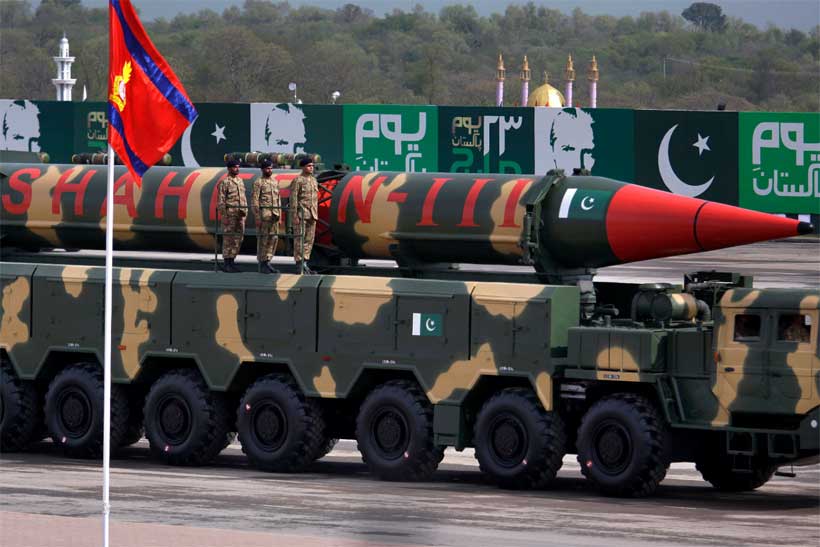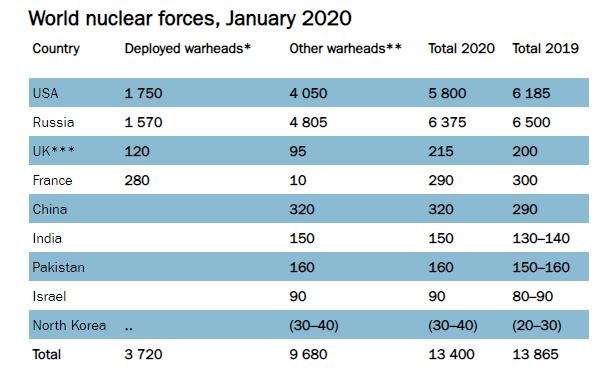
Stockholm, June 15: The Stockholm International Peace Research Institute (SIPRI) today launched the findings of SIPRI Yearbook 2020 during which it revealed that Pakistan has more nuclear weapons than India while China has more than double.
The SIPRI assesses the current state of armaments, disarmament and international security.
A key finding is that despite an overall decrease in the number of nuclear warheads in 2019, all nuclear weapon-possessing states continue to modernize their nuclear arsenals.
According to SIPRI, Pakistan has 160 nuclear weapons stockpile while India has 150. It also found that China has more than double than India with figures touching at 320 nuclear weapons stockpiles.
The nine nuclear-armed states—the United States, Russia, the United Kingdom, France, China, India, Pakistan, Israel and the Democratic People’s Republic of Korea (North Korea)—together possessed an estimated 13 400 nuclear weapons at the start of 2020, it stated.
“This marked a decrease from the 13 865 nuclear weapons that SIPRI estimated these states possessed at the beginning of 2019 (see table below). Around 3720 of the nuclear weapons are currently deployed with operational forces and nearly 1800 of these are kept in a state of high operational alert,” SIPRI said.

Source: SIPRI Yearbook 2020
Next-generation nuclear weapon systems are in development
SIPRI stated that the nuclear arsenals of the other nuclear-armed states are considerably smaller but all these states are either developing or deploying new weapon systems or have announced their intention to do so.
“China is in the middle of a significant modernization of its nuclear arsenal. It is developing a so-called nuclear triad for the first time, made up of new land- and sea-based missiles and nuclear-capable aircraft,” it stated.
“India and Pakistan are slowly increasing the size and diversity of their nuclear forces, while North Korea continues to prioritize its military nuclear programme as a central element of its national security strategy”.
